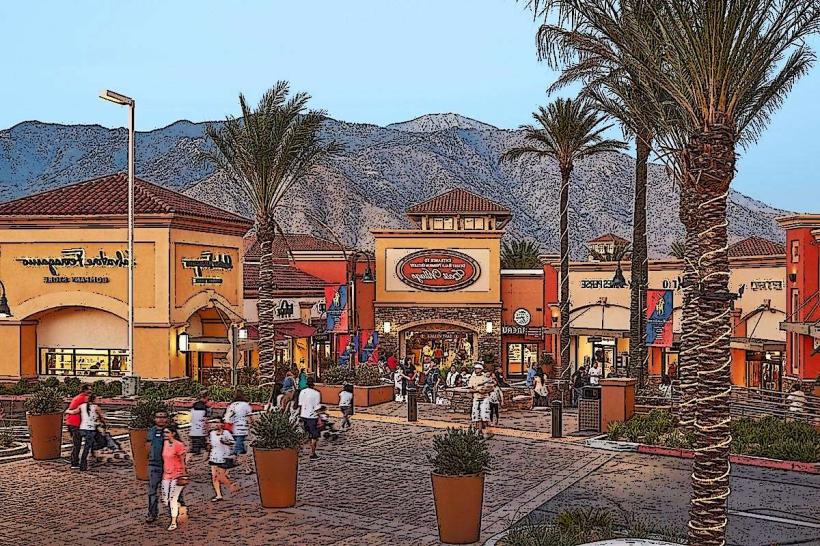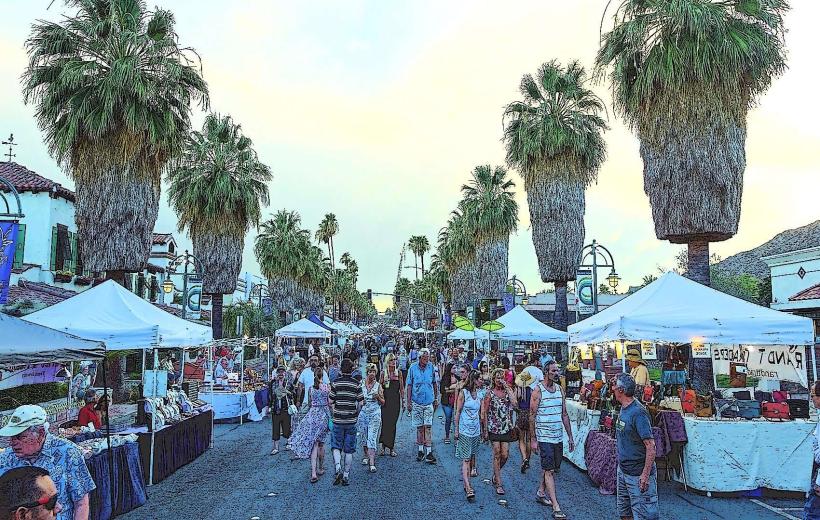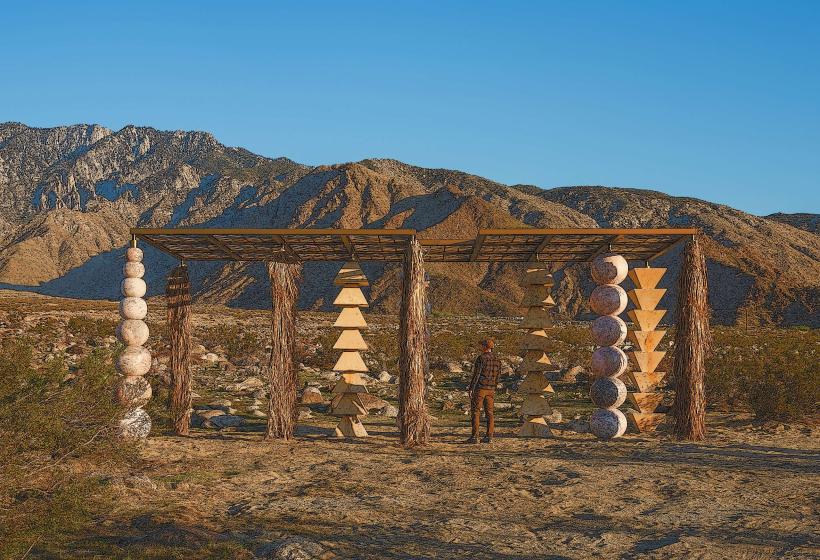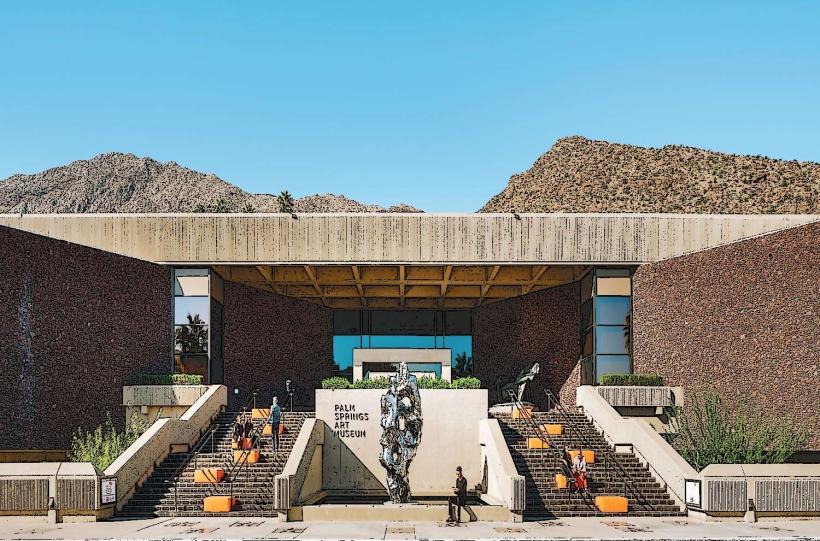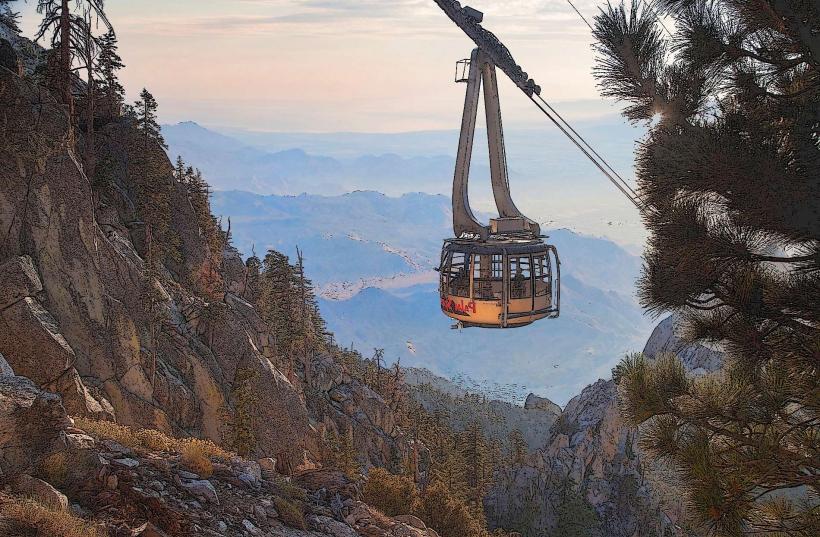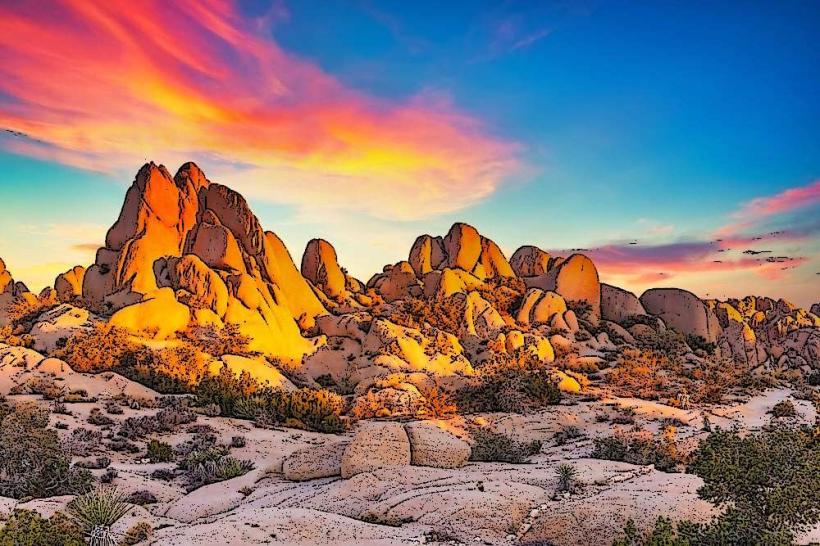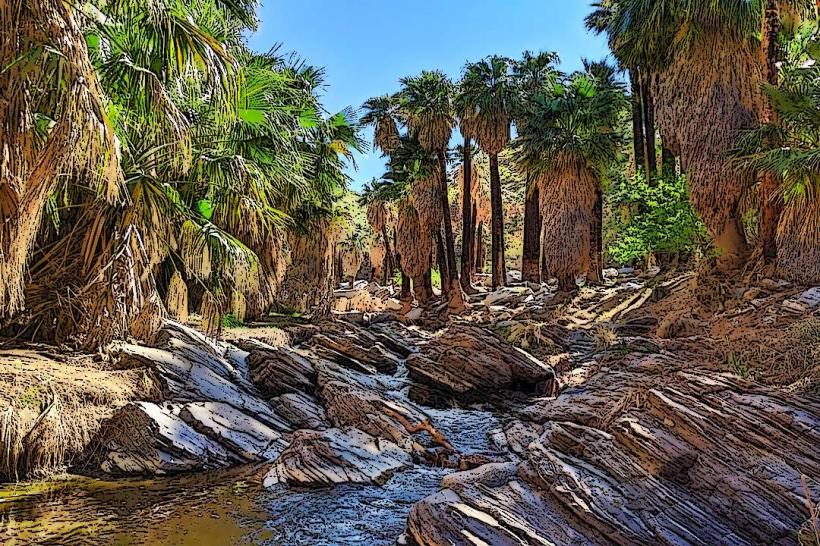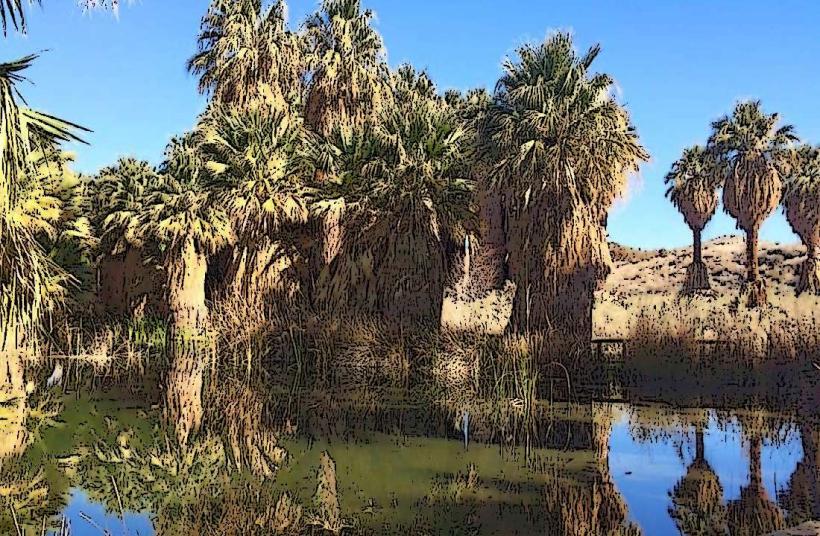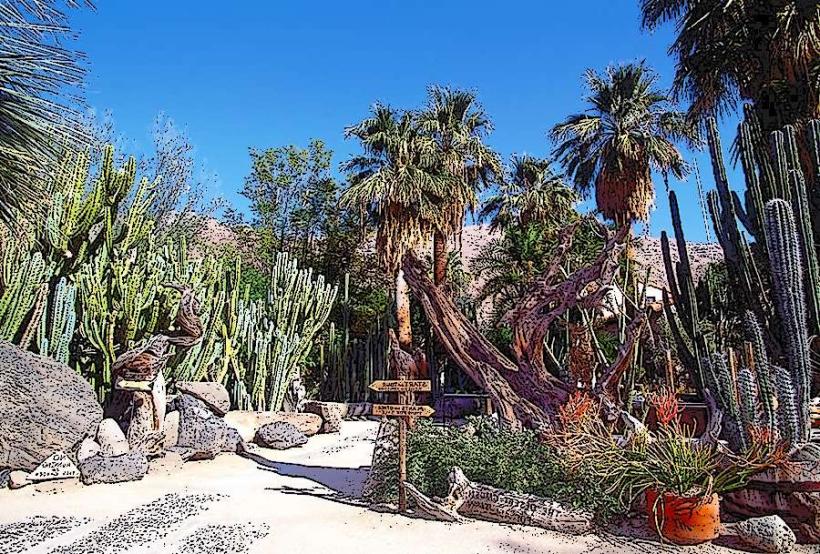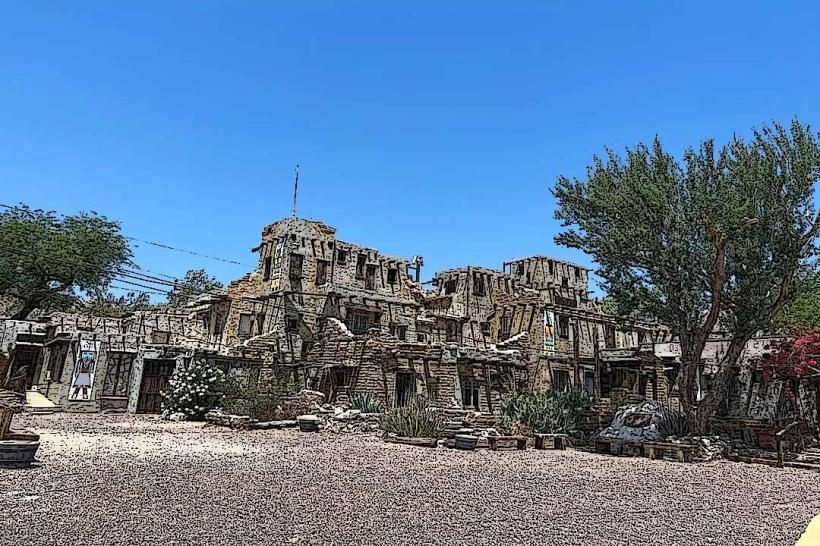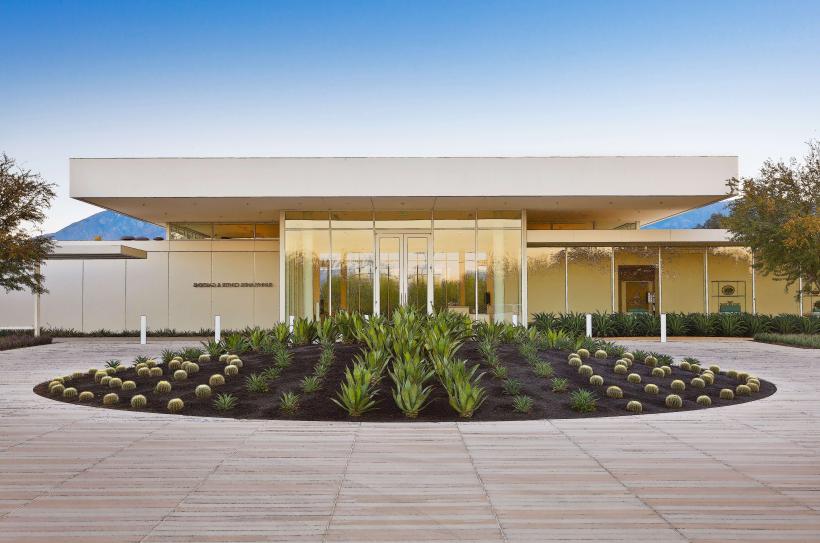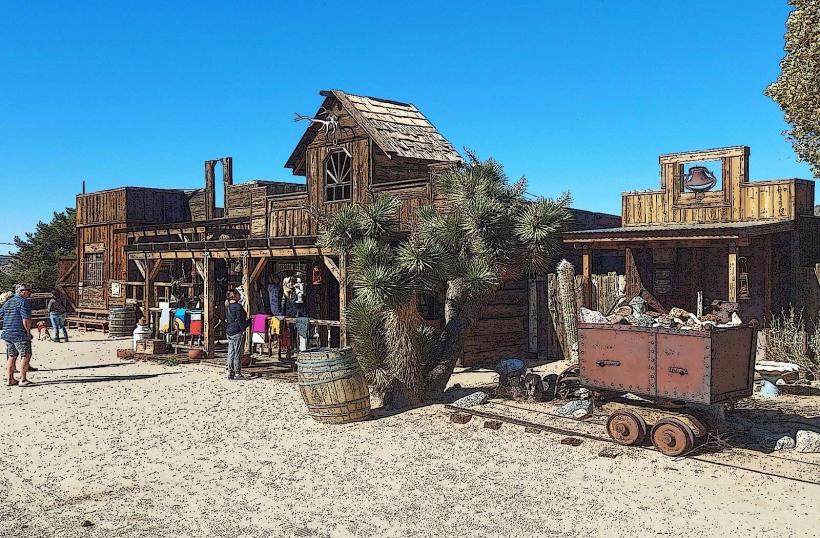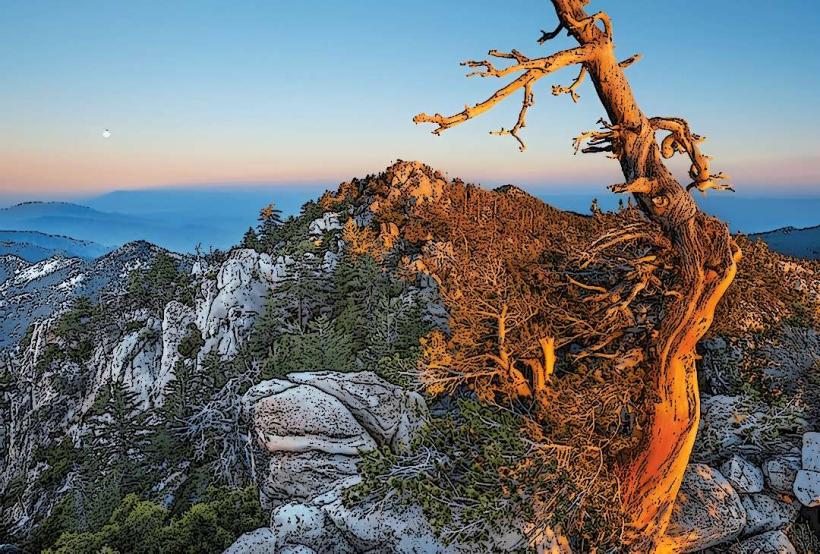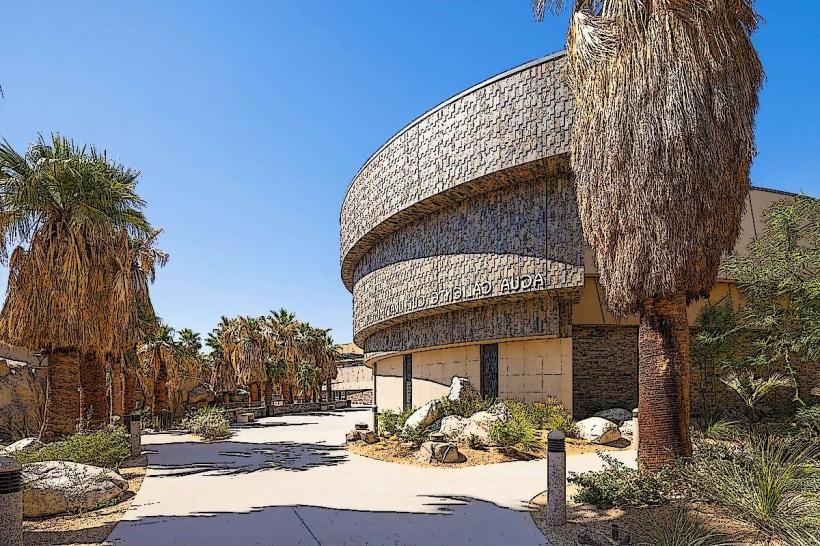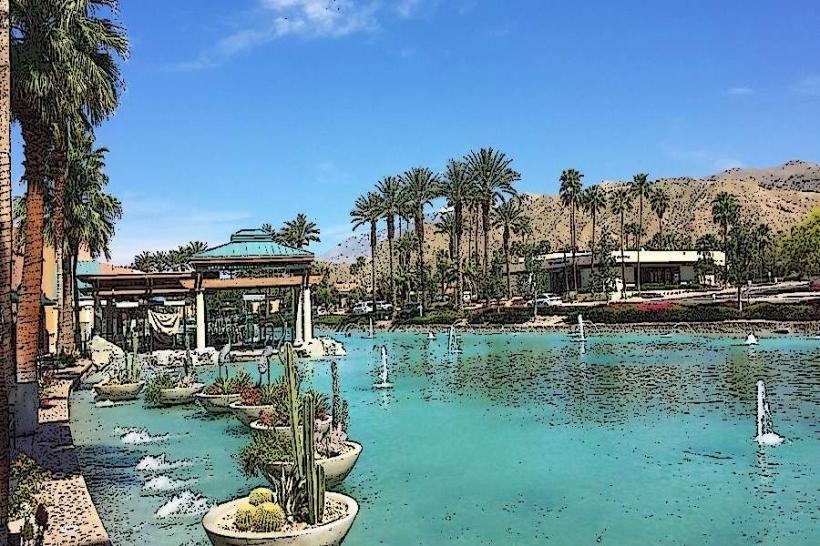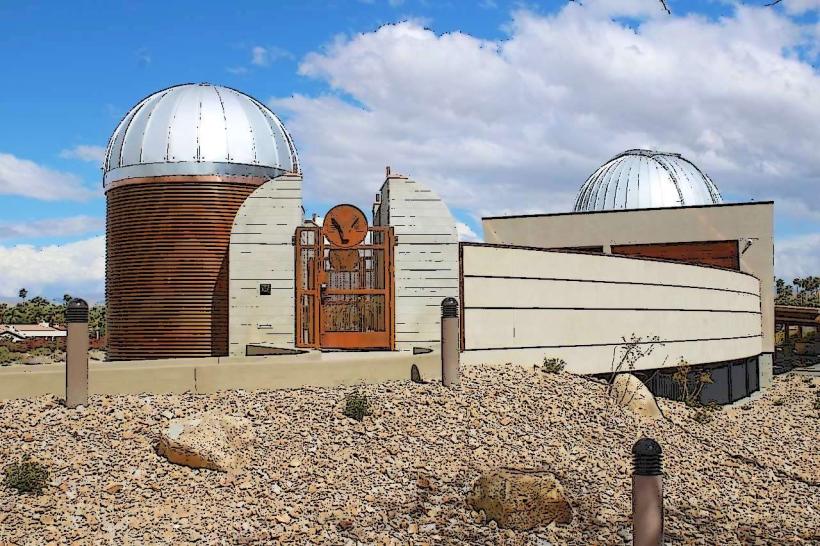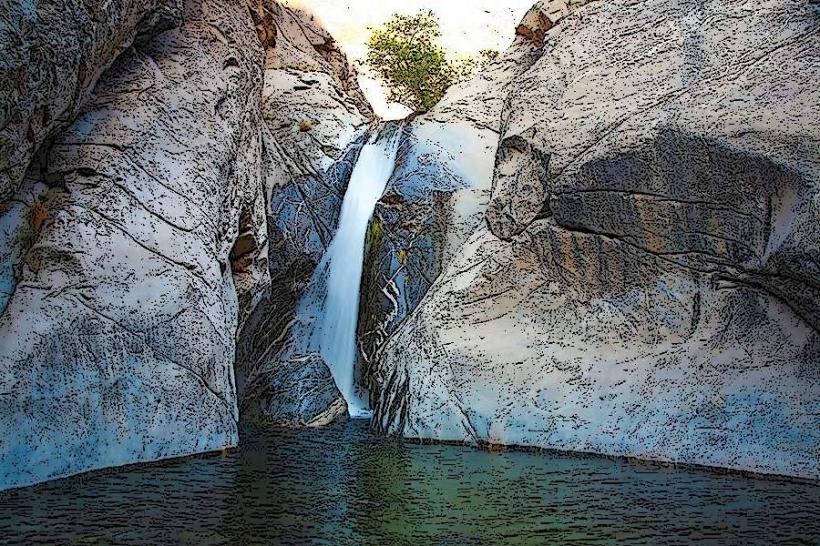Information
Landmark: Living Desert Zoo and GardensCity: Palm Springs
Country: USA California
Continent: North America
Living Desert Zoo and Gardens, Palm Springs, USA California, North America
The Living Desert Zoo and Gardens is a remarkable destination in Palm Desert, California, blending the thrill of wildlife conservation with the beauty of desert landscapes. The zoo spans over 1,200 acres and is a vital space dedicated to preserving desert ecosystems around the world. It combines animal exhibits, botanical gardens, and conservation efforts to create an immersive experience for visitors of all ages.
Key Features and Attractions
Animal Exhibits and Habitats
The zoo features a variety of habitats that showcase wildlife from desert regions across the globe:
African Safari: This expansive section is home to large African species like black rhinos, giraffes, cheetahs, and meerkats. The Rhino Savanna is one of the most dynamic mixed-species black rhino habitats in the U.S., designed to replicate the natural African savanna.
Australian Adventures: This section highlights Australian desert species, including Bennett's wallabies, yellow-footed rock wallabies, and kookaburras. It provides an immersive experience of Australia’s arid regions.
Wild Americas: Exhibiting the diversity of North and South American deserts, this section includes animals like bighorn sheep, mountain lions, and jaguars, along with a variety of birds and reptiles native to the Americas.
Nature Trails: The zoo features several nature and hiking trails that allow visitors to explore native desert plants, including cacti, wildflowers, and desert trees. These trails provide a serene escape into the beauty of the desert landscape while offering opportunities to spot desert wildlife.
Botanical Gardens
The Living Desert is home to more than 50 gardens, which collectively showcase over 1,200 plant species from deserts around the world. The gardens play a key role in conservation and are designed to help educate visitors about the importance of preserving desert flora. Some of the most notable gardens include:
Cactus Gardens: Highlighting a variety of cacti species, these gardens display the diverse and striking forms of cacti that thrive in arid environments.
Pollinator Gardens: These gardens attract a range of pollinators like bees, butterflies, and hummingbirds, which play a crucial role in desert ecosystems.
Xerophilous Garden: A special garden that features drought-tolerant plants, demonstrating how desert plants have adapted to survive in harsh conditions.
Family-Friendly Activities
The Living Desert provides a variety of attractions for families and children to enjoy:
Endangered Species Carousel: A hand-carved carousel featuring animals from endangered species, offering a fun, educational experience for young visitors.
Gecko Gulch: A play area designed for children to engage with interactive exhibits and learn about desert animals through hands-on activities.
Keeper Connections: Daily sessions where visitors can meet animal care professionals and learn about the zoo’s conservation efforts and the animals they care for. These interactions give visitors a chance to ask questions and deepen their understanding of wildlife.
Tennity Wildlife Hospital & Conservation Center: This behind-the-scenes facility allows visitors to see how injured desert animals are cared for and rehabilitated. It provides insight into the zoo's wildlife conservation and rehabilitation efforts.
Dining and Shopping
Thorn Tree Grill: Located in the African Safari section, this restaurant offers American-style food with a scenic view of the animal exhibits. It’s perfect for lunch or a casual meal.
Kookaburra Café: Located in the Australian Adventures area, serving light meals like sandwiches, soups, and salads, ideal for a quick bite after exploring the exhibits.
Crash Café: Near the giraffe habitat, offering snacks, coffee, and soft-serve ice cream to keep visitors refreshed.
Appel Gift Shop: The shop offers a variety of zoo-themed merchandise, educational books, and conservation-oriented gifts. Visitors can purchase souvenirs to support the zoo’s efforts.
Conservation Efforts
The Living Desert is deeply committed to wildlife conservation, both locally and globally. The zoo is actively involved in over 80 conservation projects across the world. These efforts include habitat restoration, species preservation, and community outreach programs aimed at educating the public about the importance of protecting desert ecosystems.
The zoo's conservation work is not only focused on animal species but also on preserving the desert environments in which they live. For example, they work on restoring degraded desert habitats and supporting efforts to protect endangered species like the black rhino and the California desert tortoise.
Visitor Information
Hours:
October 1 – May 31: Open from 8:00 AM to 5:00 PM (Last admission at 4:00 PM)
June 1 – September 30: Open from 7:00 AM to 1:30 PM (Last admission at 12:30 PM)
The zoo is closed on December 25.
Admission:
Adults (18+): $39.95
Children (3–17): $29.95
Children under 3: Free
Military discounts are also available, with tickets priced at $37.95 for military personnel.
Location:
The Living Desert Zoo and Gardens is located at 47900 Portola Avenue, Palm Desert, California 92260.
Contact Information:
You can reach the zoo by calling (760) 346-5694 for more information about tickets, events, and special exhibits.
Conclusion
The Living Desert Zoo and Gardens is an educational and conservation-focused destination that offers visitors an opportunity to connect with the desert's wildlife and plant life. Its combination of animal exhibits, botanical gardens, and interactive experiences makes it a great place for families, nature enthusiasts, and anyone interested in learning more about desert ecosystems and conservation efforts. Whether you're hiking the trails, observing animals, or exploring the gardens, the Living Desert offers a unique and memorable experience in the heart of California's desert.

